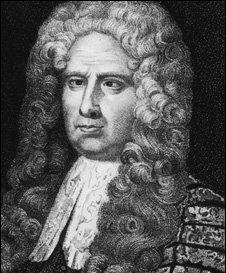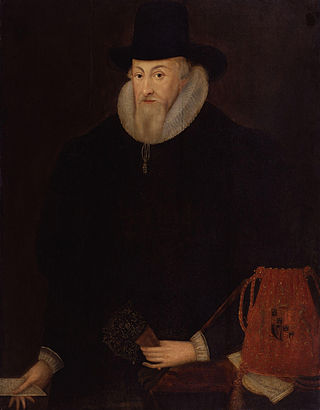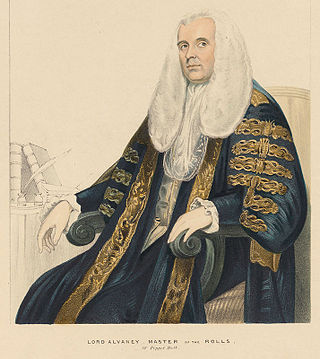Related Research Articles

Robert Henley, 1st Earl of Northington, PC, was the Lord High Chancellor of Great Britain. He was a member of the Whig Party in the parliament and was known for his wit and writing.

Sir Mark Aitchison Young was a British colonial administrator, who is best remember for his service as the Governor of Hong Kong at the time of the Japanese invasion of the territory in 1941.

Sir John Trevor was a Welsh lawyer and politician. He was Speaker of the English House of Commons from 1685 to 1687 and from 1689 to 1695. Trevor also served as Master of the Rolls from 1685 to 1689 and from 1693 to 1717. His second term as Speaker came to an end due to a bribery allegation; he was expelled from the House of Commons shortly thereafter.

Thomas Egerton, 1st Viscount Brackley,, known as Lord Ellesmere from 1603 to 1616, was an English nobleman, judge and statesman from the Egerton family who served as Lord Keeper and Lord Chancellor for twenty-one years.

William Herbert, 1st Marquess of Powis, KG, PC (1626 – 2 June 1696) was an English nobleman, best remembered for his suffering during the Popish Plot. He succeeded his father as 3rd Baron Powis in 1667 and was created Earl of Powis in 1674 by King Charles II and Viscount Montgomery, of the Town of Montgomery, and Marquess of Powis in 1687 by King James II, having been appointed to the Privy Council in 1686.

Sir Cecil Robert Havers was an English barrister and High Court judge.

Richard Pepper Arden, 1st Baron Alvanley was a British barrister and Whig politician, who served as the Chief Justice of the Court of Common Pleas. He was a Member of Parliament from 1783 to 1801.

Sir George Phillippo was Chief Justice of Hong Kong in the late 19th century. He often attended the Legislative Council of Hong Kong sittings from around 1884 to 1888.
John Gore, 1st Baron Annaly PC (Ire) was an Irish politician and peer.
Sir Gerald Alfred Thesiger, MBE was a judge of the High Court of England and Wales of the Queen's Bench Division between 1958 and 1978.

John Hussey, 1st Baron Hussey of Sleaford was Chief Butler of England from 1521 until his death. He was a member of the House of Lords, and a Chamberlain to King Henry VIII's daughter, Mary I of England.
Sir Edgar Ignatius Godfrey Unsworth, KBE, CMG, QC was a British lawyer and judge. He served as both Attorney-General for Northern Rhodesia and Chief Justice of Gibraltar during his long legal career.

Thomas Erskine, 1st Earl of Kellie was a Scottish peer.
Sir John Parnell, 1st Baronet, was an Irish politician and a baronet.
John Richards PC was an Irish lawyer and judge.
Sir Charles Arthur Roe was a British colonial administrator in India who was Chief Justice of the Lahore High Court between the years 1895 and 1898.
Sir William Frederick Haynes-Smith was an English colonial administrator in the British Empire.
Sir Walter Boyd, 1st Baronet, was an Irish judge, who was also a member of the Privy Council of Ireland. After serving for many years as the Irish Bankruptcy judge, he was transferred to the King's Bench Division of the High Court of Justice in Ireland. His much younger friend Maurice Healy described him with great respect and affection in his memoir The Old Munster Circuit.
Sir Anthony St Leger (the younger) (c.1535–1613) was an English-born judge in Ireland of the later Tudor and Stuart eras. He held the office of Master of the Rolls in Ireland.

Sir Ralph Windham was a British lawyer who held various positions in the Colonial Legal Service.
References
- ↑ India, Select Births and Baptisms, 1786–1947
- 1 2 "Obituary: Sir Cecil Fforde". The Times . 23 October 1951. p. 6.
- ↑ "Who's Who".
- ↑ "No. 33617". The London Gazette . 20 June 1930. p. 3874.
- ↑ Burke, Sir Bernard, ed. (1939). Burke's Peerage, Baronetage & Knighthood (97th ed.). Burke's Peerage & Gentry. p. 2773.